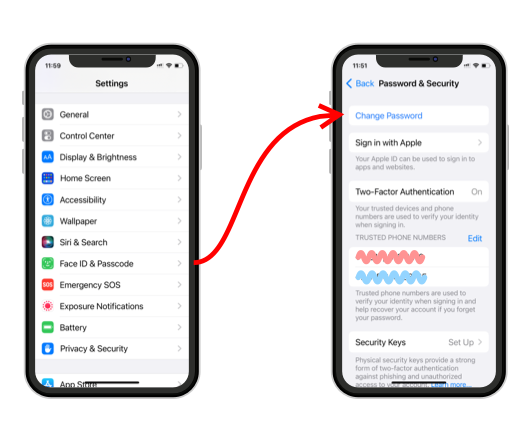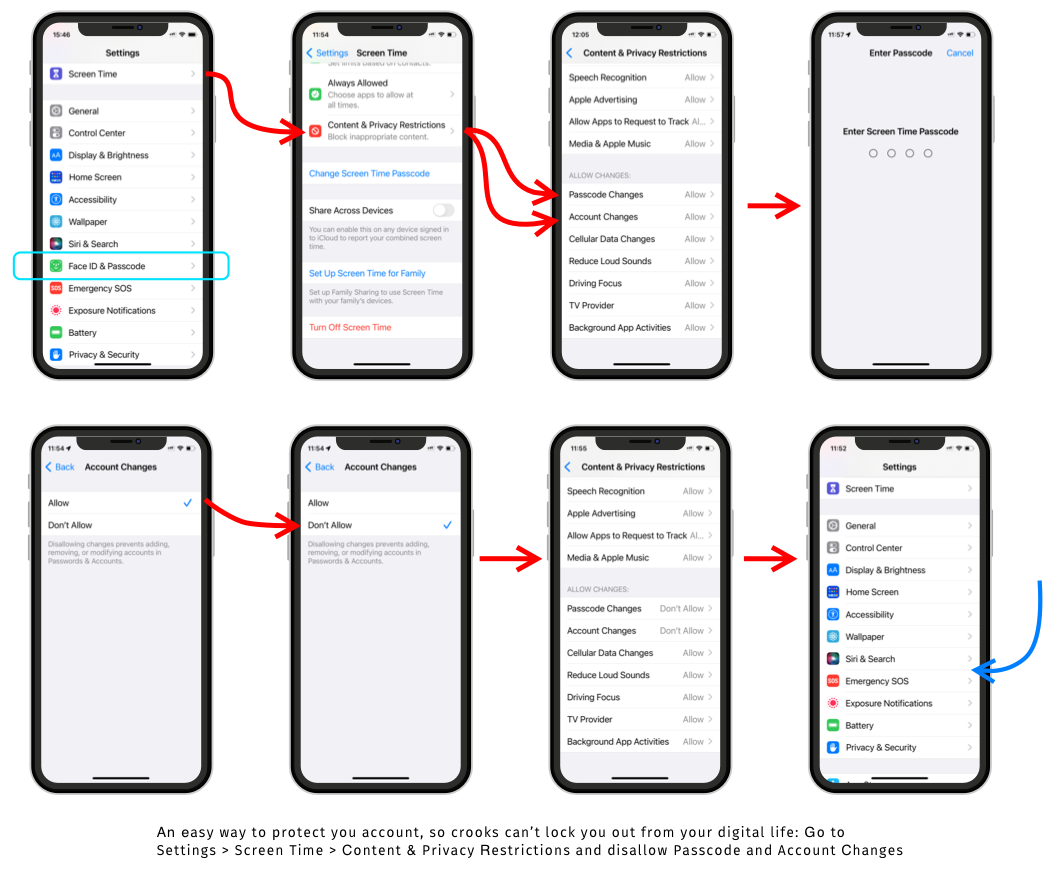The Metaverse Book
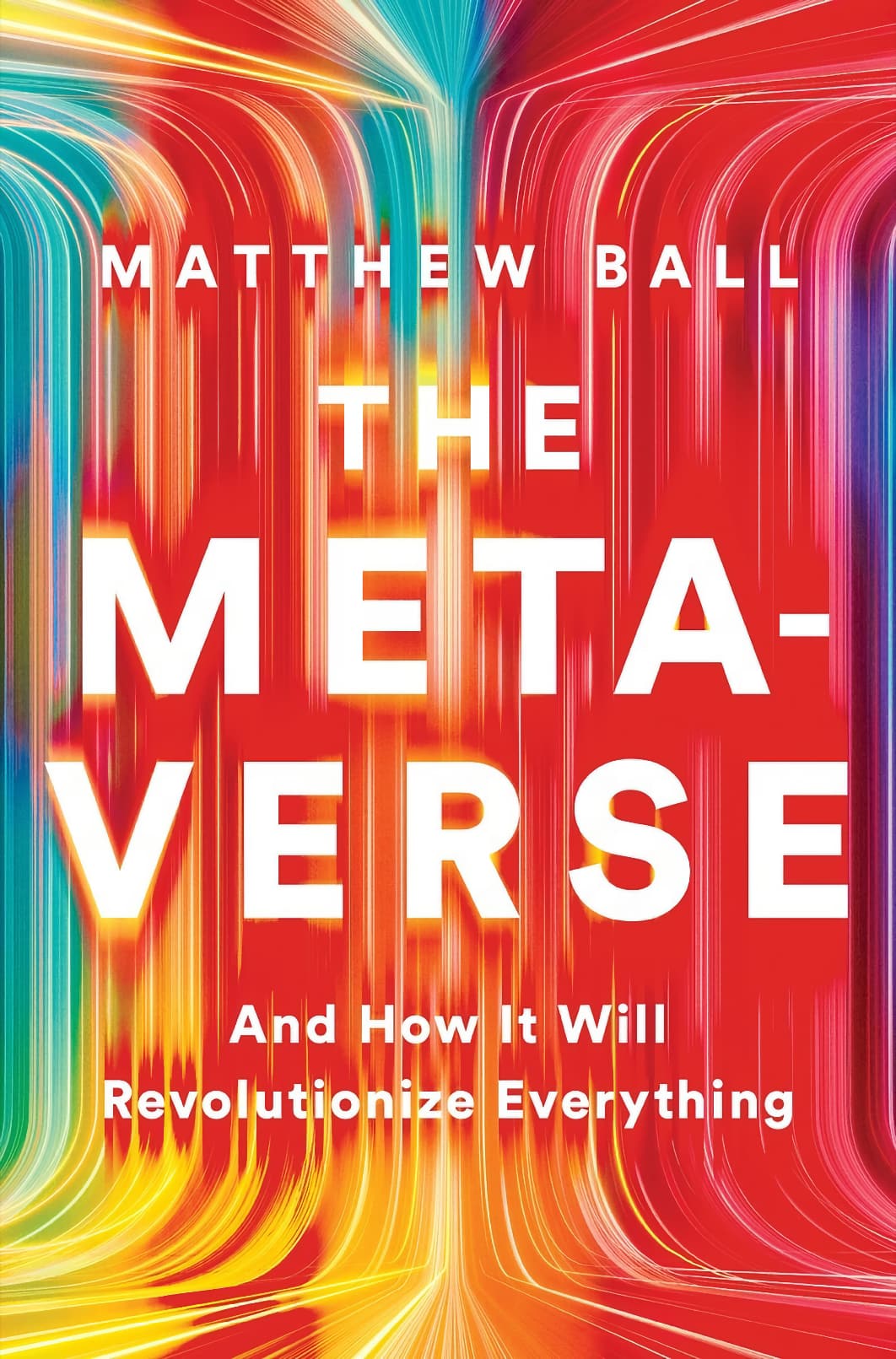
Matthew Ball's The Metaverse: And How It Will Revolutionize Everything provides a comprehensive overview of the past, present, and potential future of the metaverse. Ball defines key concepts like virtual and augmented reality, digital worlds, and the evolution of the internet into a persistent virtual realm. He analyzes technological hurdles, potential business models, and hypothetical societal impacts with insight. This is an essential read for anyone looking to understand what the metaverse is and where it may take us next.
Ball covers a tremendous amount of territory, from the evolution of virtual worlds to spatial computing to crypto-economics. While wide-ranging, he delves into topics like interoperability and governance in enough depth to satisfy technical readers like myself. I especially appreciated his exploration of how fiction has primed our expectations of the metaverse. Walking through examples from Snow Crash to Ready Player One, he makes clear connections between imagination and innovation.
With metaverse momentum growing in the past year, and amazingly some of the technological details are already now outdated. But the book’s core analysis remains highly relevant. Anyone looking to truly understand the possibilities and challenges posed by the metaverse will gain a grounded perspective from reading this book. I certainly finished it more enlightened, and with plenty of new questions about what the metaverse could enable, how it could transform society, and what risks it may pose if not thoughtfully guided. The Metaverse succeeds in covering almost every major issue around this complex emerging technology that will soon touch all of our lives.
The metaverse is upon us, it will be big and it will change the world whether we want it or not, and it will be profound, just like the internet. We all be better off if more of us will start preparing now.
Asteroid City Wes Anderson's Masterclass in Off-Kilter Cool
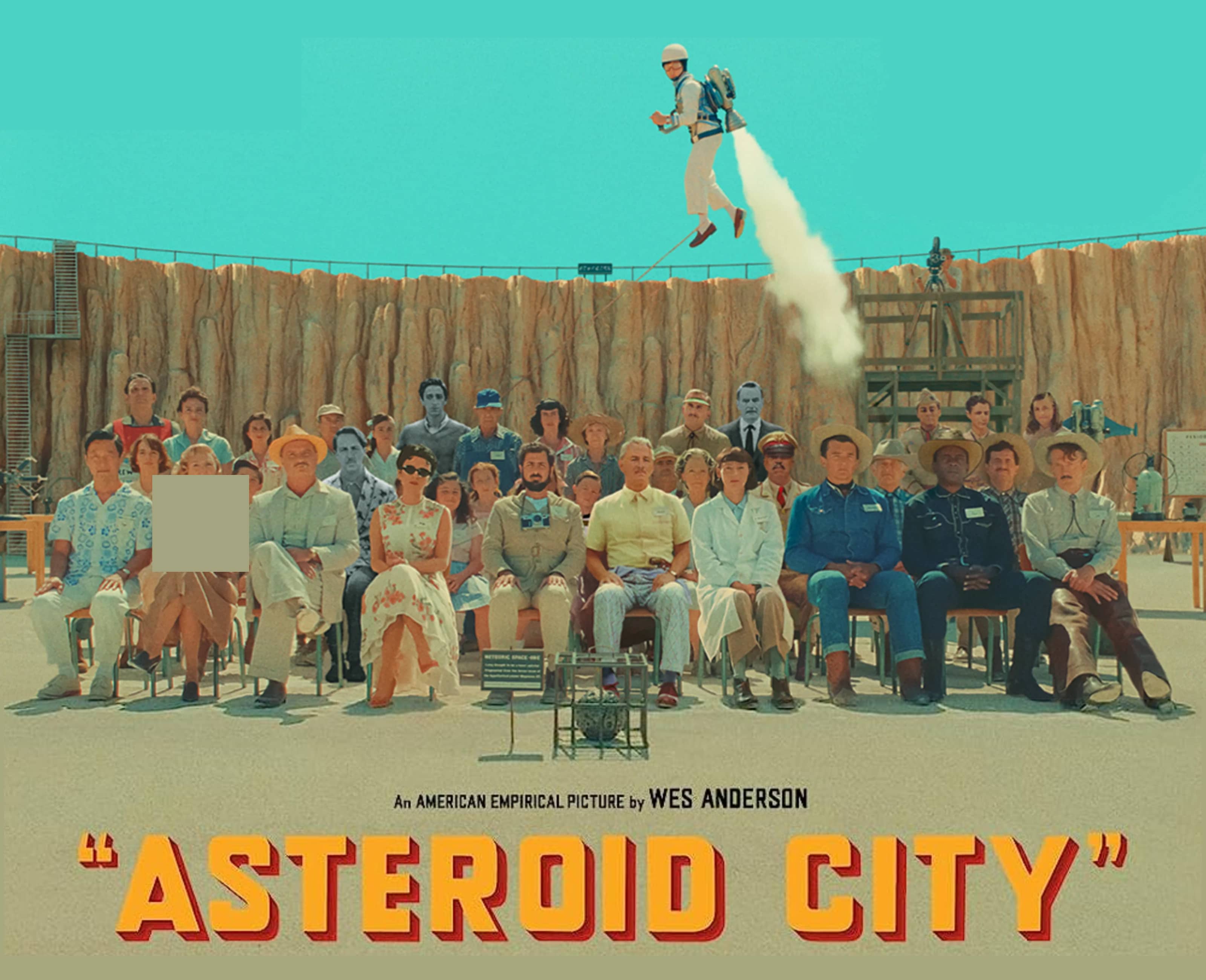
'Asteroid City' is the latest film from acclaimed, and probably my most favorite American director Wes Anderson, released in 2023. True to Anderson's unique aesthetic, "Asteroid City" is a visual feast, with his signature styling present in every frame.
For those who appreciate Anderson's artistic sensibilities (though his work is certainly not to everyone's taste), Asteroid City will be a sheer delight. The cinematography is gorgeous, complementing a witty, quirky script brought to life by Anderson's expert direction. His offbeat humor and heartfelt sentiment shine through, just as they have in classics like The Royal Tenenbaums and Moonrise Kingdom.
The stellar cast only adds to the magic. With an ensemble packed with big names like Tom Hanks, Scarlett Johansson, Edward Norton, Bryan Cranston, Adrien Brody, Jason Schwartzman, Tilda Swinton, Jeff Goldblum, Margot Robbie, Willem Dafoe etc., the performances are pitch-perfect. The actors fully inhabit the idiosyncratic world that Anderson has created, imbuing their characters with warmth, humanity and humor.
For Wes Anderson fans, Asteroid City is his latest imaginative wonderland brought to life. It exhibits all of his directorial trademarks - striking visuals, melancholic emotion punctuated with deadpan comedy, and quirky characters oblivious to their own eccentricities. Early reviews indicate this is Anderson operating at the height of his creative powers, crafting an experience both poignant and delightfully absurd. Even those normally left cold by his films may find something to appreciate in this immersive cinematic universe. This movie makes it clear Anderson's singular vision remains as enchanting as ever.
Protecting Against iPhone Passcode Thieves
If thieves steal both your iPhone and passcode, they can lock you out of all your devices almost instantly. Here's how to protect yourself
Here's the situation: if a thief steals just your iPhone, it's terrible, but your account, your data, photos, credit cards, and bank accounts are safe. However, if, before stealing your iPhone, they snoop your passcode, the situation becomes drastically more brutal. When they know your passcode, they can change it, and they can change your iCloud password, log you out of all your other devices, and then proceed with various ways to exploit the situation. And do all that in seconds. Then things will get way worse really quickly because the loss of your iPhone is just a beginning of an actual disaster to the extent of them deleting all your photos, highjacking all your media accounts and soliciting people who trust you, using your credit cards with Apple Pay, possibly get to your banking accounts, etc.
You might think that it's not that easy to steal your iPhone passcode because you mostly use Face ID or Touch ID, but they use clever technics to get it. For example, a couple of girls might take pictures of each other in a crowded touristy place. A crook appears and offers to take a photo of both of them, and he does. He hands the iPhone back, asking them if the picture came out well. As he does it, he presses the power button a few times, forcing the iPhone to prompt for the pin. At this moment, the victim is distracted, and his accomplice is looking over her shoulder or filming how she enters the pin. And if they manage to steal a phone itself a few minutes later, the game is over. And this is just a straightforward scenario. There are many other ways to do that.
It is a pretty alarming flow, and ever since Joanna Stern, John Gruber, and others started to warn people about it, some of the most savvy users have been aware of this risk. John Gruber even raised that issue to the Apple execs during his WWDC Talk Show. Surprisingly, Craig Federighi did not have a good answer. What a shame.
However, things are not that bad because I have a good solution for you. It does not require purchasing any security products. iOS already has a way to protect you; surprisingly, there is little talk about it.
By default, you go to the Setting app and from there to Face ID and Passcode and take over. Let me show you how to put an additional level of protection there.
- Go to Settings App on your iPhone.
- Select Screen Time.
- Scroll down to Content & Privacy Restrictions.
- Under the ALLOW CHANGES section, locate Passcode Changes and Account Changes.
- You will be prompted to enter if you have already set up a Screen Time password (as many parents do). You will be prompted to create a Screen Time password if you still need to set it up.
- Change the setting to "Don't Allow" for both Passcode and Account Changes.
- That's it! Your Settings will no longer display the option to change the password, and your iCloud settings will prevent you from disabling Find My or changing the password. Just remember to go to Screen Time again if you do need to change those things.
Of course, it would not protect your iPhone from being stolen, and crooks still can overlook your passcode. Yet, at least they will not be able to lock you out from all your accounts and thus give you time to lock them out, mark your device as stolen, and so on. Your Screen Time password they obviously did not see, will be in their way. Just make sure it's different from your iPhone passcode.
In any case, please be cautious of all this, and use a good passcode. I suggest using a longer number because once you opt out of using a default 6-digit pin setting, it's way harder to guess and even steal it by sneaking up.
The Unsettling Brilliance of Beau is Afraid - The Best Film I've Experienced in a while
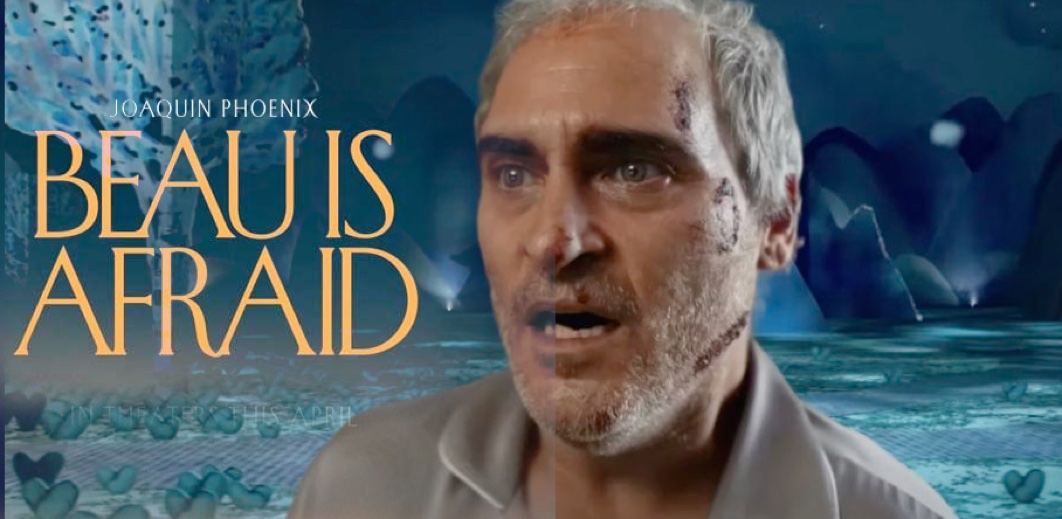
'Beau is Afraid' by Ari Aster (Все страхи Бо), an unexpectedly unique cinematic journey, captivates with its intense portrayal of human psychology and societal issues. The narrative is rife with profound madness, enigmatic dreams, and cryptic allegories. I anticipated a pull-back of the camera to reveal the objective reality, yet that moment never arrived. In this deliberate omission, the film's exquisite beauty unfolds.
Our protagonist navigates a metaphorical jungle teeming with life, a vivid reflection of his internal turmoil, entangled with the echoes of childhood trauma. This isn't just a journey through the wild; it's a deeply personal exploration of his inner psyche, a battlefield where he grapples with haunting memories and painful emotions.
The film boldly depicts the escalating chaos, an epidemic of lunacy and paranoia sweeping across parts of the United States. No matter how nightmarish the scenes appear, the film subtly emphasizes that the onscreen horrors may not be far removed from the chilling realities unfolding in various corners of the country.
It's challenging to categorically recommend 'Beau is Afraid.' It is a film that fascinated me, leaving me in deep awe and admiration. However, it certainly isn't a casual watch for everyone. Its potent themes and intense narrative might not sit well with those unaccustomed to such storytelling. Nonetheless, for those willing to delve into its depths, it promises an enriching cinematic experience unlike any other.
In summary, if you're yearning for a unique film that combines stark realism with psychological exploration, 'Beau is Afraid' could be a compelling choice. It's undoubtedly the best movie I've witnessed this year, leaving an indelible mark on my perception of contemporary cinema.
Death's End - A Breathtaking Finale to a Remarkable Trilogy
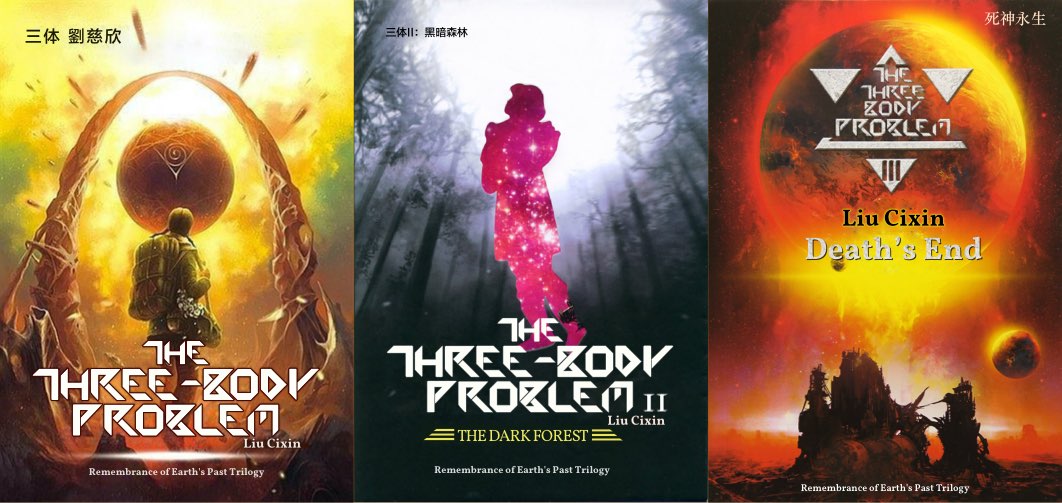
Liu Cixin's Three-Body Problem Trilogy has been a transformative contribution to contemporary science fiction. Its final book, "Death's End", stands out as my personal favorite in the series. While the 2nd one dives into the explanation of the Fermi Paradox, this one deals with even bigger questions.
The trilogy as a whole is a remarkable exploration of the universe, human nature, and the ultimate destiny of civilization. The title of the first book, "The Three-Body Problem", refers to a problem in physics concerning the behavior of three celestial bodies moving under nothing but the influence of their mutual gravitation. No general solution to this problem exists, and it serves as a metaphor for the unpredictable complexities of life and the universe.
Starting with "The Three-Body Problem", we're introduced to a secret military project that makes first contact with an alien civilization on the brink of destruction. The second book, "The Dark Forest", dives into the cosmic sociology and introduces us to the chilling concept of the Dark Forest in the universe.
"Death's End", the third and final book, is an exceptional work of hard science fiction. It brings together the plot lines and concepts from the first two books and expands them into a dizzying portrayal of time, space, and reality. The storyline is awe-inspiring and provokes profound thoughts about humanity's place in the universe.
What strikes me the most about this concluding novel is Liu's ability to capture the sublime and terrifying beauty of the cosmos. The depth of imagination, the intricacies of plot, and the grand scale of its ideas make "Death's End" a truly spectacular read.
If you're a science fiction enthusiast and haven't dived into this trilogy yet, you're missing out on a truly extraordinary literary adventure. This is true hard Sci-fi

I started writing a blog on this site in 1999. It was called Dimka Daily. These days many of my updates go to various social media platforms and to the /blog here at this site, called just Blog. I left Daily as archive for posterity.

